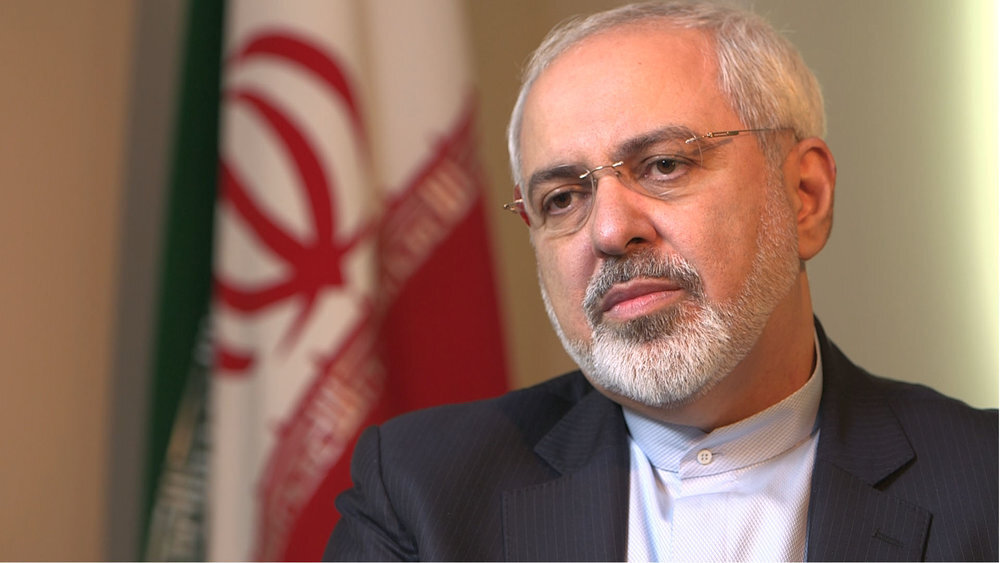Iran will take next step to scale back nuclear activities if obligations not met: Zarif

TEHRAN – Foreign Minister Mohammad Javad Zarif has said Iran will take the next step in reducing commitments under the 2015 nuclear deal if the remaining parties to the agreement do not honor their obligations.
“It is the Islamic Republic of Iran who should take decision in this respect. This step will be taken in continuation of previous actions if other sides do not fulfil their obligations,” he told ICANA in an interview published on Saturday.
He noted that Iran’s actions are within the framework of the JCPOA, the official name for the nuclear agreement.
Paragraph 36 of the JCPOA has provided a mechanism to resolve disputes and allows one side, under certain circumstances, to stop complying with the deal if the other side is out of compliance.
Under the nuclear deal, Iran agreed to put limits on its nuclear activities in exchange for the termination of economic and financial sanctions.
However, Donald Trump withdrew the U.S. from the UN-endorsed JCPOA in May 2018 and imposed the toughest ever sanctions against Iran in line with his administration’s “maximum pressure” policy against Tehran.
The remaining parties, particularly the European sides, have failed to honor their commitments since the U.S. reimposed the sanctions.
Zarif also said that the remaining JCPOA members are unanimous in their views that the U.S. has caused all the tensions surrounding the JCPOA.
The remaining JCPOA parties held an emergency meeting in Vienna on July 28 to discuss Iran’s moves in reducing its nuclear commitments and explore ways to save the nuclear deal.
Abbas Araghchi, the deputy foreign minister and a top nuclear negotiator who represented Iran in the meeting, called the talks “constructive”. However, he warned Iran would continue to reduce its nuclear commitments if Europeans failed to salvage the pact.
“The atmosphere was constructive. Discussions were good. I cannot say that we resolved everything, I can say there are lots of commitments,” the senior nuclear negotiator told Reuters.
Helga Schmid, secretary general of the European External Action Service (EEAS), also issued a statement saying that “participants reaffirmed their continued commitment to preserving the JCPOA.”
She also said, “They recalled that both nuclear commitments and sanctions-lifting are essential parts of the agreement.”
On May 8, exactly one year after the U.S. withdrew from the multi-nation nuclear agreement and reimposed sanctions on Iran, Tehran said its “strategic patience” is over and announced a partial withdrawal from some aspects of the pact, saying that the country would no longer adhere to some of the limits on its nuclear activities. It also threatened to step up uranium enrichment if an agreement is not made within 60 days to protect it from the sanctions’ effects.
In follow-up to that deadline, on July 7 Iran announced that it has started enriching uranium to a higher purity than the 3.67% as the Europeans missed the 60-day deadline to devise a concrete mechanism to protect the country from the U.S. sanctions.
Iran has not yet said what the next step would be but it can include reinstalling more centrifuges or using more advanced centrifuges.
German Finance Minister Olaf Scholz said on Wednesday that Germany is working with Britain and France to uphold the nuclear deal.
According to Reuters, he said Germany was coordinating closely with France and Britain, and the goal remained to uphold the nuclear agreement with Iran.
In a phone conversation with French President Emmanuel Macron on Tuesday, President Hassan Rouhani said the first step that Europe should take to save the JCPOA is to normalize oil and banking ties.
“Unfortunately, despite Iran’s full commitment to its obligations, only a small part of Iran’s economic interests has been met, and after the withdrawal of the United States, we have not only not seen any serious action by Europe in this respect, but also some European companies left Iran following United States’ unilateral sanctions,” Rouhani stated.
NA/PA
